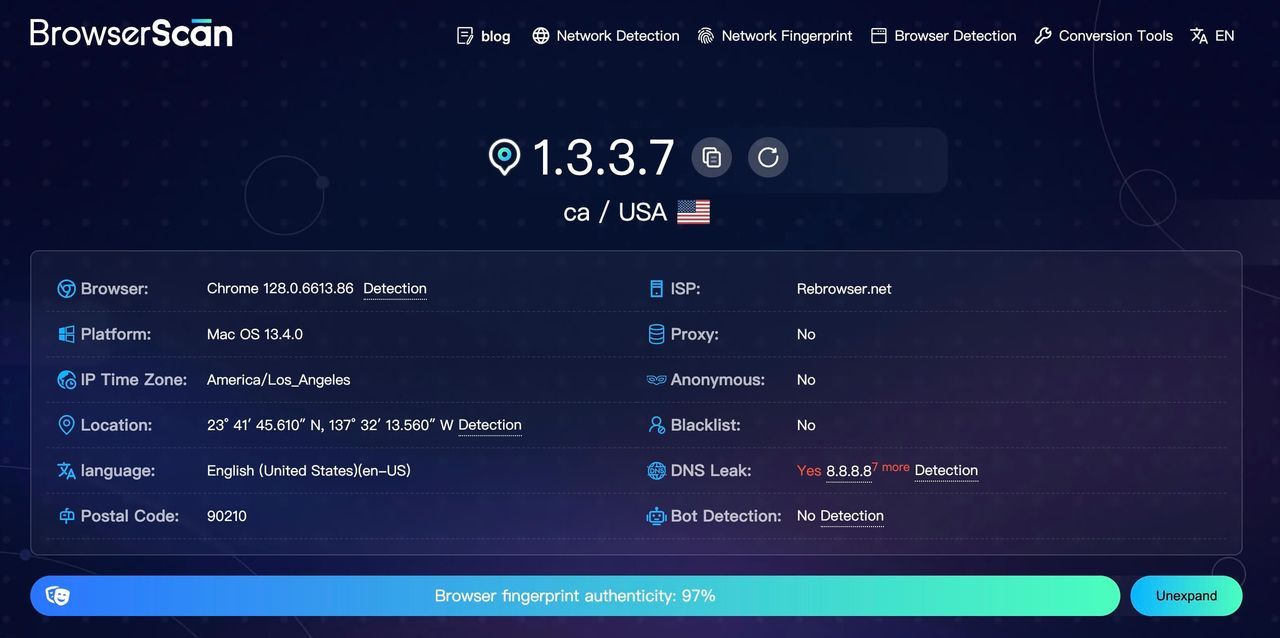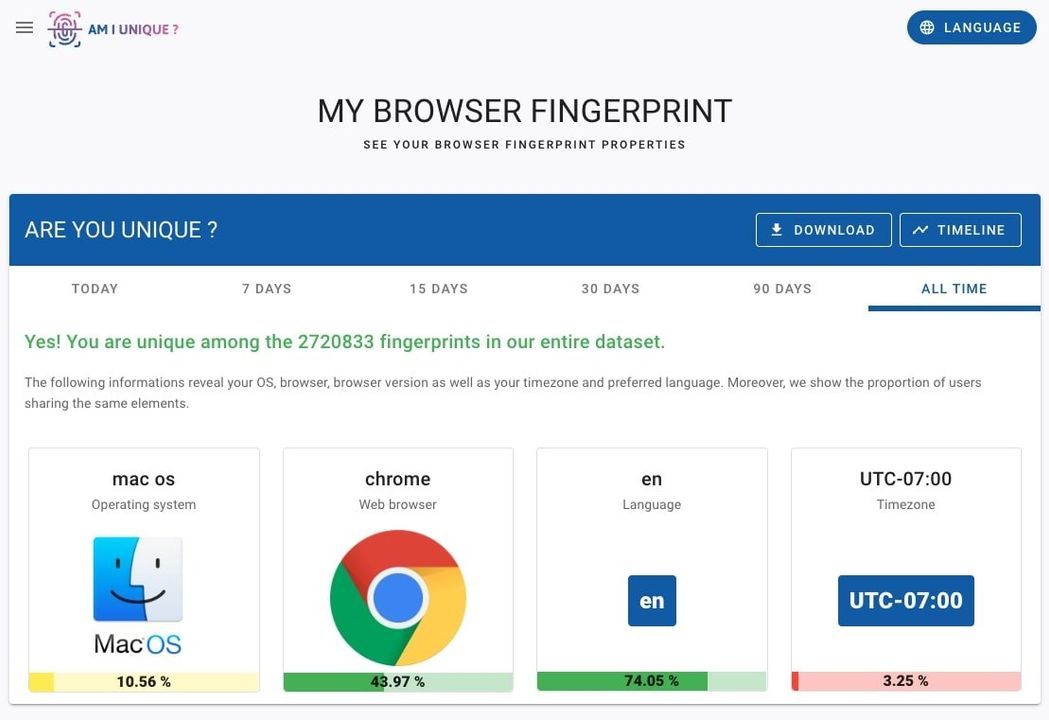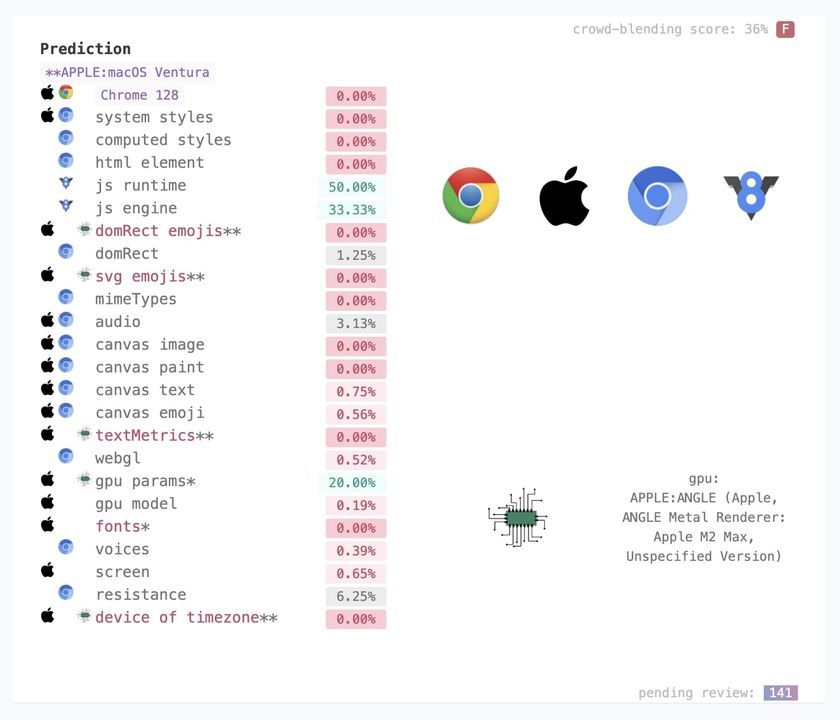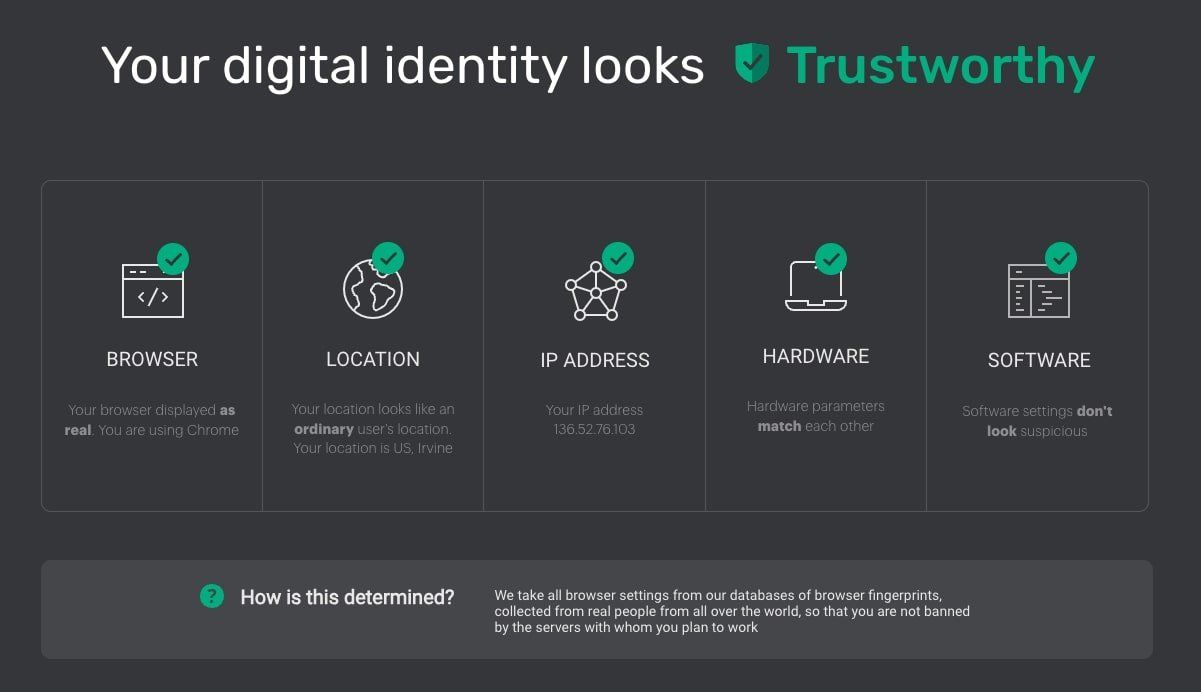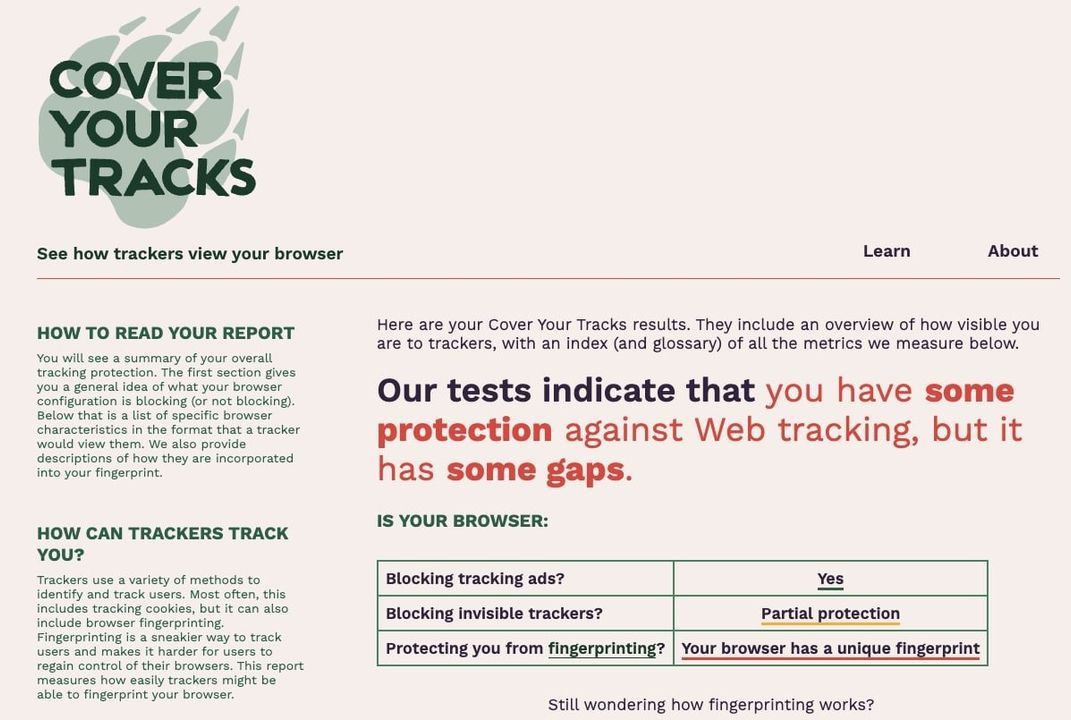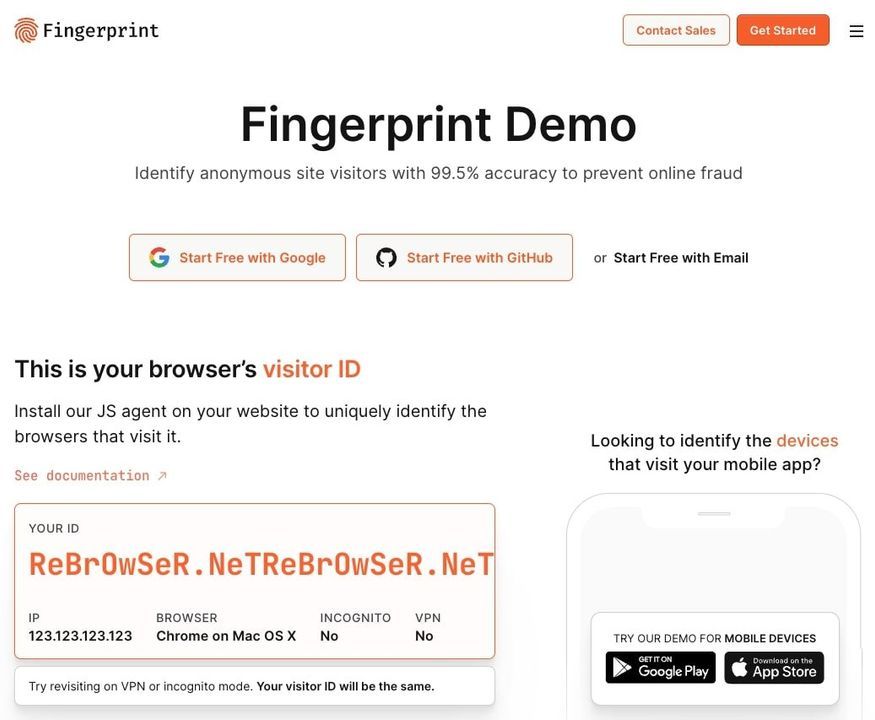Pixelscan: Analyze Browser Fingerprints
![]()
Ever wondered just how much your browser gives away about you? Pixelscan knows the answer—and it's here to help you take back control. It scans and reveals what’s really happening behind the scenes, making it easier to stay safe and secure online. Let’s dive into how Pixelscan is changing the way we understand digital footprints.
Introduction to Pixelscan: An Advanced Browser Fingerprinting Tool
Pixelscan is a tool designed for browser fingerprinting analysis. It works as a comprehensive platform for security checks.
Pixelscan offers powerful insights into various aspects of a user’s browser. It can identify fingerprint parameters like canvas and WebGL data. The tool also detects residential IP addresses and geolocations.
Pixelscan.net provides comprehensive insights into mobile and desktop browsers. It spots manually-controlled browsers with irregular connections. This helps enhance online security and privacy protection.
Pixelscan’s pledge is transparency in data processing. It aims to be at the front of privacy tools. The platform finds a niche in the digital security landscape. Pixelscan’s remarkable analysis supports safer browsing for everyone.
Understanding the Pixelscan Website
The Pixelscan website offers tools for evaluating privacy and security settings. You can generate detailed reports on your digital footprint.
Benefits of using Pixelscan:
- Fast browser analysis
- Robust detection of weaknesses
- Detailed documentation for better understanding
How Pixelscan Performs Browser Analysis
Pixelscan scans pixels on a grid in a variety of patterns. It identifies browser features like JavaScript, WebRTC, and more.
Pixelscan's main features include:
- Evaluating browser attributes
- Detecting tampered configurations
- Analyzing JavaScript usage
It maintains user privacy by revealing only the necessary details. The tool empowers users to understand how websites gather personal data.
Key Features and Data Analysis in Pixelscan
Pixelscan provides unique features. It identifies security vulnerabilities and other risks. The tool checks server settings and browser data.
| Feature | Description | Benefit |
|---|---|---|
| Browser Fingerprinting | Evaluates settings to create a unique ID. | Helps find potential privacy risks. |
| JavaScript Analysis | Checks JavaScript settings in the browser. | Reveals possible tracking methods. |
| IP Address Tracking | Identifies and evaluates IP addresses and geolocation data. | Helps understand exposure to location tracking. |
| Hardware Profiling | Scans device attributes like CPU, GPU, and screen resolution. | Ensures accurate detection of hardware traits. |
| Configuration Checks | Reviews browser settings and inconsistencies. | Identifies possible tampering or misconfigurations. |
| Data Collection Insights | Explores how websites collect and manage personal information. | Empowers users to improve privacy practices. |
| WebRTC Leak Detection | Detects WebRTC leaks that may reveal IP addresses. | Strengthens network security. |
| File Scanning | Scans within browser storage for security weaknesses. | Identifies risks from saved data or cookies. |
Insights into Data Collection by Pixelscan
Pixelscan analyzes browser data to identify weaknesses. It scans for WebRTC leaks and IP exposure. This ensures security and privacy for users.
Pixelscan offers:
- Server-side analysis
- Browser fingerprinting with grid patterns
- Settings evaluation
It keeps users informed about data collection methods. Pixelscan also recommends browser settings for better privacy.
The Scanner’s Capability to Reveal Browser Characteristics
Pixelscan is a reliable scanner for browser identification. It can reveal IP addresses, geolocations, and network details. The tool helps understand potential risks.
Key identification features include:
- Checking for inconsistencies
- IP and device tracking
- JavaScript attribute analysis
This approach ensures a secure browsing experience. It emphasizes privacy protection in web browsers.
How to Use Pixelscan Safely for Bot Detection and Development
Pixelscan is safe to use for checking browser behavior. It helps detect internet bots and identify inconsistencies. It supports developers in bot spotting.
Using Pixelscan for Better Navigation and Usage
Pixelscan aids in understanding browser weaknesses. It allows users to generate detailed reports. It helps improve navigation and browser usage.
How to use Pixelscan:
- Visit the Pixelscan website
- Analyze your browser's settings
- Use the results to adjust browser settings
Best practices:
- Avoid revealing personal information
- Adjust privacy settings based on results
- Check third-party software compatibility
The privacy policy of Pixelscan ensures transparency in data handling.
The Role of Pixelscan in Privacy Protection and Web Scraping
Pixelscan protects privacy while allowing web scraping analysis. It identifies how websites collect data and personal information. It helps users stay aware of data-sharing terms of service.
How Websites Collect Data and Pixelscan’s Response
Websites collect personal information through browser settings. Pixelscan reveals these practices and helps users maintain privacy.
Common data collection methods:
- IP tracking
- Browser attribute logging
- Geolocation detection
Pixelscan helps users improve their security and privacy.
Exploring File Scanning and Vulnerability Detection
Pixelscan scans files to detect browser security vulnerabilities. It helps identify risks in browser configurations. The tool supports a reliable security suite for web browsers.
Benefits of file scanning:
- Detects potential security threats
- Ensures reliable privacy settings
- Offers unparalleled protection
Pixelscan helps users conduct secure web navigation. It sets a new frontier in browser fingerprinting and privacy protection.
Conclusion
Pixelscan represents an intriguing development in the world of browser fingerprinting and bot detection. By attempting to serve both sides of the bot detection/creation divide, it's carving out a unique niche in the market.
While the tool offers powerful features and promises ethical use of data, users should always approach such services with caution. It's crucial to understand the implications of sharing browser information and to use such tools judiciously.
Overall, Pixelscan offers a comprehensive solution for those looking to understand their digital footprint, improve their web scraping techniques, or enhance their bot detection capabilities. Its unique approach and commitment to transparency make it a noteworthy player in the evolving landscape of online privacy and data collection.
